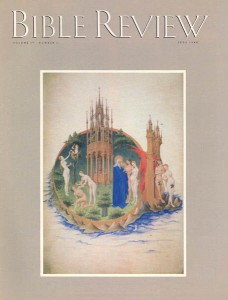In its earliest use, just over 200 years ago, the term “biblical theology” meant Christian theology. “Biblical theology” represented a search for the overall theological meaning of the Bible—the New Testament and the Old Testament—from a Christian religious perspective.
This point may be emphasized by a historical footnote. The term was first used in 1787 by a German theologian, Johann Gabler, to distinguish “biblical theology” from “dogmatic theology.” The latter reflected, as its name implies, the dogma, beliefs and theology of the church. After the Protestant reformation, scholars—almost exclusively German—began looking for dogmatic support not simply from the church but from biblical texts. It was this search that led to the development of “biblical theology” as opposed to the more Catholic “dogmatic theology.” For Gabler—and even for many scholars today— “biblical theology” is simply a subdivision of “Christian theology.”
Several developments have occurred in the past 200 years that have affected the scholarly search for a “biblical theology.” Perhaps most important is the fact that biblical studies has lost much of its relationship to theology; instead, biblical studies has developed into an independent academic discipline encompassing various historical, philological, literary, archaeological and even religious studies, but often little, if any, theology. As such, biblical studies is now much more closely related to the humanities than to theology in the traditional sense.
Already a library member? Log in here.
Institution user? Log in with your IP address.

